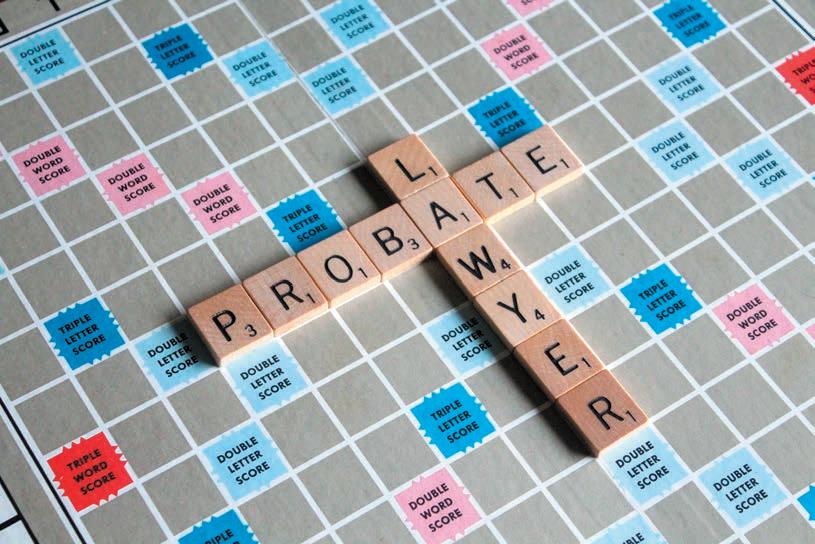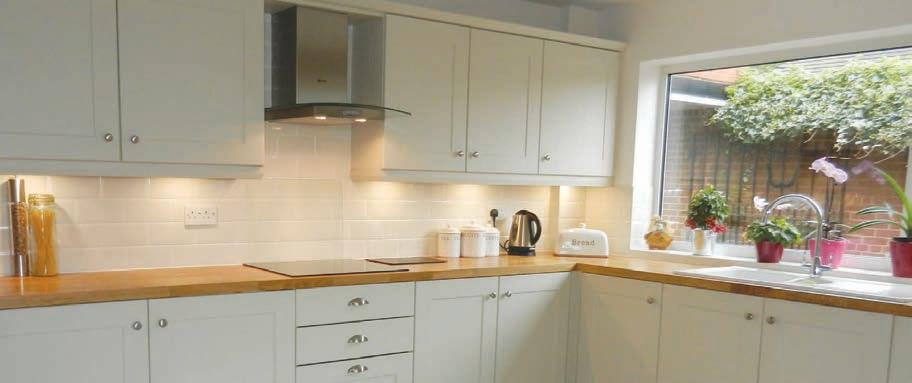
5 minute read
Protect your wealth
By Michael Fogg
I’ve been asked this month to provide general advice on what to do when a loved one dies. Please get in touch if you have any other questions you want answered in future months.
Advertisement
The most important thing to remember is that, although you may have a number of people and organisations asking for information and wanting you to do things, some things are urgent and other things are important. It is a matter of prioritising the important above the urgent – remember that whenever you are doing one thing, you are doing that thing instead of anything else. Please also remember that what is urgent for one person is not urgent for another. The best way to deal with this situation is to prioritise and, where possible, delegate and work in a team. However, I will share some key tips which should help a little:
Register the Death
This needs to be done promptly after someone dies, and by a relative of the deceased or else someone who was present at the death. If you are responsible for arranging the funeral (see next section) it may well be that you are also the right person to register the death. This registration is done at the local Register Offi ce- for Cardiff that is the Cardiff Register Offi ce. In the current pandemic, emergency rules have been passed to allow a death to be registered by telephone. Cardiff Register Offi ce’s physical offi ce is closed to the public unless you have a pre-arranged appointment with them. Their contact details are 029 2087 1680 or 029 2087 1684, or they can be emailed at Registrars@ cardiff .gov.uk. Their website is
www.cardiff registeroffi ce.co.uk/deaths/
When you register a loved one’s death you should be offered the ‘Tell Us Once’ service. I recommend you use this, as it will notify all government departments of the person’s passing, saving a lot of time later on in the process. At this point you will also be asked how many death certifi cates you want. They do cost £11 each, but I recommend that you get a large number of these as you may well need them later on in the process. You will also be asked which funeral director you are using for the arrangements, and the Register Offi ce will send them a form authorising either burial or cremation (whichever is appropriate).
Arrange the Funeral
You may know what your loved one’s funeral wishes are – burial or cremation, and any form of religious or secular ceremony. If the deceased has left a Will, quite often their funeral wishes will be included in this. However, it is worth remembering that funeral wishes are one of the few things in a Will which are not legally binding. If you are not sure which funeral director to use, a substantial proportion of them are regulated by the Funeral Planning Authority (where pre-paid funeral plans may have been purchased) or are registered with the National Association of Funeral Directors (www.funeral-directory.co.uk). Although it is possible to arrange a funeral yourself, most people tend to instruct a Funeral Director.
I recommend speaking to two or three funeral arrangers before settling on the one that you want to use, also taking into account any specifi c wishes that the deceased may have left. If you choose a funeral director, they will be the people advising you on what needs to happen and in what order. Make sure it’s someone you trust and get on with.
Finalising your loved one’s Finances
This is a more long-term piece of work which needs

to be completed. You may find, as you are dealing with the funeral arrangement, that family members come to you asking for updates on what they are likely to inherit from the Estate (this word – Estate – refers to all assets minus all debts of the deceased person). Firstly, you need to be sure that you are the correct person to deal with the Estate. This means searching for your loved one’s Will. The people nominated in that Will as the Executors are responsible for finalising the Estate – although it is important to note that if you are named as an Executor you do not have to do the work but can instead renounce your Executorship (to give up your right to deal with the Estate) or reserve your power in favour of another Executor who will take the lead instead of you. Here’s where the death certificates come in! The person dealing with the Estate needs to formally notify all asset holders of the death. This is usually done by providing a copy of the death certificate to them. In response, each asset holder will advise on the value of the holding at the date of death, and what they need to receive to cash in or transfer each asset. At this point, you may be asked to provide a Grant of Representation (“Probate”).
What is Probate?
Probate is the word usually used to describe a Court Order which instructs any interested party to follow the instructions of the Personal Representative (“PR”) of the deceased. The PR is usually an executor of a Will, or a legal next of kin where there is no Will.
Probate is granted by the Probate Registry of the High Court, and at present can take up to three months to be issued after the application has been made.
It is not always necessary to get Probate, but if you have been asked for it by one organisation, there is a good chance that all other organisations will want to see it as well. This is because it protects them against a claim that funds had been given to the wrong person as they were following the explicit instruction of a Court Order.
Need Help?
If you would like any help or advice on anything mentioned above, we would be happy to answer any questions by phone or email. Please get in touch on 029 2021 1693 or by emailing
TrustingWillpower@outlook.com.











